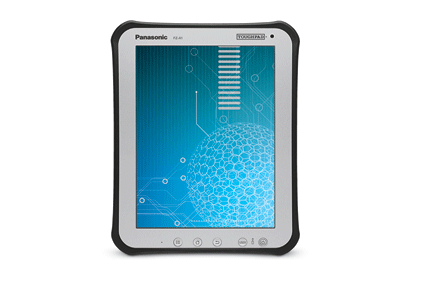The overall success of any retail or food/beverage service organization is highly dependent on the accuracy and efficiency of its supply chain. Getting goods where they need to go, when they need to be there, is a critical factor in maximizing sales.
Some beverage supply chains ship to retail distribution, while others provide product directly to the store shelf for sales, delivery and merchandising. With both types of operations, organizations need to integrate selling, marketing, and delivery efforts across the business. Fortunately for these companies, there have been a number of hardware and software technology introductions that provide “visibility” from the supplier to the store shelf to improve efficiency and the company’s net earnings.
However, despite the proven benefits of many of these technologies, some businesses still find it cumbersome to enter traceability information into their system, resulting in manual workarounds and latency in data capture.
Complicating the matter is the ever-growing variety of beverage types, flavors and sizes that hit the market every year. Beyond the overwhelming number of wines, spirits, and domestic and imported beers that compete for consumer dollars, there is also heated competition between sports drinks, energy drinks, bottled water, coffee and tea drinks, and carbonated beverages. Some supply chains, such as high-end wine and spirits, are well-suited for picking and shipping small quantities. But for companies accustomed to caseand pallet-sized orders of carbonated beverages or best-selling beers, adding new brands and varieties complicates picking by forcing them to accommodate smaller quantity shipments.
With such challenging inventories, it is almost certain that to remain competitive in the beverage industry, companies will need to embrace new technologies along the entire supply chain, to help with everything from forecasting and warehousing to delivery.
Over the years, devices from handhelds to laptops and smartphones to convertible tablets have been used for various tasks along the supply chain. However, the hardware solution best equipped to power this approach is a wireless-enabled tablet PC, which provides all the functionality of these disparate solutions in a single device that delivers reliable, real-time communication and secure data access from any point along the supply chain.
Tablets are lightweight, portable, and easy-to-use devices that deliver long battery life. Additionally, applications designed for tablet use have reduced the need for keyboards, making data entry a simpler process. A variety of tablet sizes and user options are available to meet the requirements of the different job functions across the beverage supply chain.
These devices provide seamless two-way communication between drivers, sales reps, in-store merchandisers and warehouse managers. Suppliers can transmit data that shows what’s been shipped, the contents and the estimated arrival times. Merchandisers can adjust their workflow and personnel scheduling on the fly to accommodate large incoming shipments if needed.
Through the use of advanced mobile software applications, products can be easily traced and inventory precisely managed, enhancing product quality via improved tracking of “freshness dates” and optimizing the flow of product to consumers.
However, even with the demonstrated value of tablet technology, there are still a large number of businesses that haven’t realized the full potential of tablet solutions with a secure wireless data connection, or still have many questions about the best ways of implementing them. On top of that, there are still some businesses relying on traditional pen and paper and manual processes. It shouldn’t be long, though, before these businesses realize that data entry via a tablet can significantly save time and help reduce costly human error. Check-in processing is accelerated, and any problems can be quickly recognized and corrected via real-time wireless connectivity. Not having to look up product codes, visually compare written documents, or manually check invoices or packing slips can help greatly improve productivity.
A Shift in the Way Business is Done
The Warehouse
Combined with warehouse management systems (WMS), tablets provide beverage distributors increased visibility into their warehouse operations. This greatly reduces the amount of time employees spend figuring out what tasks they need to perform next. Paper-based systems provide total inventory numbers, but can't track the products to individual locations, while with tablets, workers can track every case and pallet of product from the time it arrives on a receiving dock right up until the time it is loaded on a delivery truck. Furthermore, the direct movements of these cases and pallets can be tracked wirelessly in real time, which helps reduce the risk of error.
Linking tablets to existing technologies, such as RFID and barcode scanning, ensures that the right items are being picked, packed and delivered, and shipments can be automatically tracked all along delivery routes, helping minimize the chance for human error. With these wireless processes, businesses have an up-to-date view of their inventory and real-time status updates on orders and deliveries. Additionally, warehouse managers can know where to store each case or pallet of product to ensure the most efficient retrieval. They can then instruct workers on which specific cases or pallets to pull according to the deliveries that need to be made each day.
“Real-time communications for relaying ordering information is critical,” states Mark Maraj, Vice President of Sales and Marketing at MIT Systems, a leading provider of mobile technology solutions for packaged goods distributors. “Businesses can build pallets from orders from real-time input. Without these real-time capabilities, warehouses would struggle, often requiring workers to put in extra hours. This can have a huge impact on a company’s bottom line.”
Furthermore, tablets allow warehouses to further utilize automated warehouse capabilities to keep up on more complex orders and more demanding consumers and retailers. Although warehouse automation in the beverage industry has been around for some time, the easy human-to-automation interface provided by tablets is helping to improve efficiency and reduce costs. Businesses can increase capacity, loading control and accuracy, regardless of SKU complexity.
With the increasing number of beverage options, these improved efficiencies help reduce operational complexity and increase bottom-line dollars. With the wireless communication provided by tablets, pallets can be built in real time, helping reduce the need for overtime hours.
Transportation
For transportation and route delivery, customers expect the highest standards in timeliness, tracking and proof of delivery. When outdated technology or faulty mobile computers contribute to order errors or delays, customers become quickly dissatisfied and loss of business can occur.
Many of the systems offered today to manage the transportation process are proprietary solutions, which are difficult to upgrade or modify as business needs evolve. With the use of tablets, companies can break from these systems and develop solutions that address their specific requirements, using off-the-shelf software.
An efficient transportation management system combined with tablets and a secure, reliable wireless data connection provides better visibility, control over expenses, and more efficient routings for both inbound and outbound shipments.
From helping to maintain vehicles and optimize fuel usage to authenticating deliveries and providing turn-by-turn driver instructions, wirelessly-connected tablet PCs play a vital role in keeping product moving at a fast pace and arriving on destination when needed.
For carriers and shippers, every mile and every nickel counts—especially with high fuel costs and just-in-time delivery schedules. Gone are the days when drivers were left to determine their own routes or rest stops. Today's transportation management solutions allow tight control of these factors as well as the ability to monitor the freight at every phase of delivery.
Savvy route delivery and courier managers are outfitting their teams with rugged, lightweight and feature-rich tablets. The integrated wireless features of these devices allow delivery personnel to access, enter and transmit data securely from their vehicle or the customer's facility in real time. A variety of inputs, ranging from electronic signature capture to image and barcode scanning, are available to support and enhance proof of delivery, time-stamping and traceability. Other driver aids such as built-in GPS capabilities and turn-by-turn instructions also are available. For long-haul drivers, tablets also provide a secure and reliable platform for checking emails, catching up on social media and staying connected with family and friends.
Retail
From pre-sale to in-store merchandising, tablets can be invaluable. All the functions of the order-to-delivery process can be easily integrated with back-end accounting, ERP or warehouse management systems. Additionally, the large screen size of tablets allows detailed diagrams for setting up new in-store displays, as well as allowing the merchandiser to sell new products by leveraging marketing materials that can be shown directly to customers from the device. The increased screen space of today’s tablets also helps improve the efficiency and accuracy of order-taking.
In-store merchandisers can discover and correct problems in the field or respond quickly to competitor activity, protecting sales and their space on the shelf. They can use their tablets to monitor on-shelf inventory and support in-store promotions, as POS displays, and for new product launch activities. Wireless-enabled tablets can also play a vital role in retail stores’ business continuity plans.
With tablets available, if a store’s primary wired connection fails, salespeople can still accept and process payments, securely access customer and transaction data, manage inventory and more, until the connection is restored.
Route Sales
With the number of beverage options available today, having up-to-the-minute information at a route salesperson’s fingertips is crucial. With a tablet, promotional videos and other marketing materials for soon-to-be-released products can be viewed right from the sales floor. Salespeople can also quickly check on pricing and the delivery dates of these new products. Shelf and back-of-store inventory also can be easily managed with a tablet and competitive data can be captured in the retail environment to share with corporate sales and marketing teams.
In some instances, the route salesperson also may be the delivery driver and the in-store merchandiser. When a single person holds all these roles, the tablet is especially valuable due to its portability and capacity to easily switch between job tasks.
Advantages of Today’s Tablets
With their broad range of features and functions, it’s easy to see why tablets have gained significant traction in the beverage industry. Tablets provide mobile workers with improved efficiency and the ability to provide customers with real-time information and unparalleled visibility into their supply chain. Useful functions include barcode scanning, signature capture, and secure, reliable data capture and retrieval across the entire supply chain.
Tablets give manufacturers, third-party logistics providers and corporate shipping managers the tools they need to better manage their supply chain networks.
When it comes to selecting a tablet, some of the key factors to keep in mind are the device’s purpose and functionality, its ability to keep working in rugged environments, its wireless communication capabilities, and its overall cost of ownership.
Purpose-Built Devices
Although iPads and Android tablets are taking the world by storm, the use of consumer tablets in the beverage supply chain can be problematic. Workers in this field typically put in 8+-hour days that can be physically demanding. Not only are these devices one drop away from being put out of commission, often the tablet’s antenna performance is poor, making it difficult to maintain constant communication. Additionally, the battery life of most consumer tablets is not sufficient to make it through a full workday. If the battery fails in the field, the user has to rely on a second device or return to a pen-and-paper approach. And when the battery reaches end-of-life on one of these devices, the unit must be shipped to the OEM for battery replacement at a substantial cost.
Furthermore, some businesses still rely on a myriad of devices, such as laptop and desktop computers, barcode readers and RFID scanners, all of which don’t always work together. Traditional laptops can be awkward to carry and may break if dropped - an important concern when crates of beverages are being moved about. Traditional computers also don’t usually have built-in barcode scanners, making it difficult to efficiently track product.
In contrast, commercial-designed rugged tablets are built to last, have batteries that are replaceable, are designed to work for 10+ hours, provide daylight viewable screens and can come with built-in barcode scanners and stylus pens to allow for signature capture on the screen. With a purpose-built device, the tablet’s battery can be replaced by IT or even in the field by the user. Additionally, they deliver data security, processing power and OS support to run a wide variety of mobile enterprise software applications. With a tablet, companies can rely on a single device to meet virtually all of their needs.
Form Factor and Functionality Advantages
Full-screen tablets deliver a large viewing area and workspace, which help increase the accuracy of order taking and data entry, as well as providing the ability to visually share the latest and greatest beverage products and promotions with retail customers. Additionally, tablets are lighter and more portable than laptop PCs and are better equipped to connect with peripheral devices, such as barcode and RFID scanners, enabling salespeople and instore merchandisers to check stock and place orders on the fly right from the sales floor.
Real-Time Communication
Rugged tablet PCs enable real-time tracking from the moment a product leaves the manufacturer’s warehouse to the time it is placed on display and then purchased by a consumer. These devices make it possible for employees in various locations to securely access and enter critical information at any point of the supply chain process. As such, tablets require advanced, integrated, reliable wireless technology to ensure they remain connected with a company’s network.
“Connectivity is key,” states Vicky Obenshain, Vice President, Wireless at Panasonic. “Without being connected, a tablet is really just a glorified clipboard. With a connected device, workers have immediate access to a wealth of information, equipping them to handle just about any task, regardless of the situation.”
With a variety of wireless communications options, including Wi-Fi and 3G and 4G LTE mobile broadband, plus GPS capabilities, tablets can stay in touch with the home office. They make it easy to provide instructions and status information to drivers, including turn-by-turn directions to the lowest-cost fuel stops or to a new customer's warehouse.
Additionally, to exceed customer expectations, Panasonic designs and manufactures its own antennas for its Toughpad family of tablets. The powerful antennas exceed the leading carriers' wireless network requirements. Furthermore, to further boost wireless performance, the company partners with VPN providers like Verizon Wireless for solutions that sustain application sessions even through suspend-and-resume cycles and loss of connectivity. If a user loses connectivity while an application is transmitting data, the solution suspends the transmission - for days if necessary. As soon as connectivity is re-established, data resumes transmission at the point where the application was interrupted.
Durability
Whether in a warehouse, on a delivery truck or in a retail location, durability is a key factor when it comes to tablet usage. According to a survey of end customers conducted by VDC Research, the top cause of tablet failure is dropping the device. Other leading causes are exposure to water/liquid, dust contamination, excessive vibration and excessive temperature exposure. Once a device is down, the impact can be widespread and may include delays in orders and shipments, lost productivity for workers, and potentially new hardware testing and software integration.
While ruggedized tablets may not be as sleek and sexy as some consumer products, these tablets are able to withstand the rigors of the road. Rugged tablets are resistant to shock, vibration, liquids and extreme temperatures, and can be mounted in a variety of positions in the truck cab. This level of durability results in tablets that deliver unmatched reliability and help ensure maximum worker productivity.
Security
Protecting company data is of utmost importance in any industry, with most organizations going to great lengths to secure their sensitive information internally. However, when that information is shared across the supply chain, security is only as strong as the weakest link. Because sharing information with suppliers is an essential part of doing business, companies such as Panasonic offer tablets that are FIPS 140-2-compliant (Level 1 and Level 2) with dedicated security cores for data encryption and include preinstalled, persistent drivers for approved smartcard readers.
In addition, it also helps to have a highly-secure wireless network upon which to operate. The Verizon Wireless 4G LTE network includes a number of built-in, highly advanced security features to help protect sensitive data. These include secure SIM card storage, mutual authentication between the network and tablet, longer root key lengths, signal integrity protection, airlink encryption and proactive security protocols during network handoffs.
Lower Total Cost of Ownership (TCO)
If a tablet fails, there can be significant repercussions. Even a brief period of downtime has a ripple effect that can impact productivity and customer satisfaction.
With rugged tablets, failure rates drop significantly, which means fewer repair expenses and less downtime. This can translate to large savings per unit—and that does not take into account the lost revenue that occurs when systems are down.
What’s Next?
As the food and beverage industry becomes increasingly complex, companies need to adapt in order to meet evolving inventory needs. By deploying rugged tablets on a highly-secure wireless network, businesses can take advantage of the latest inventory software to help optimize both profitability and operational efficiency.
In the future, rugged tablet PCs could take an even more prominent role in the beverage industry. They can help increase productivity and accuracy, regardless of the number of SKUs in the inventory. At the same time, these devices can help reduce manual labor and related costs.
About Panasonic
Panasonic’s family of fully-rugged Toughpad tablets includes both Android-powered and Windows 8 Pro devices. The tablets combine highly-secured data and device management with the seamless connectivity and enterprise-grade technology required by the beverage supply chain industry.
Toughpad provides supply chain workers the integrated features and options required to find answers and make decisions that will positively impact business. The tablets can withstand extreme drops, water, dust and freezing temperatures, resulting in unmatched reliability and improved worker productivity.
Toughpad tablets are designed to operate for years longer than a consumer tablet, and are available with features and accessories such as barcode and RFID scanners, stylus pens for signature capture and heavy-duty docks—making them well-suited for just about any job across the beverage supply chain.
About Verizon Wireless
Verizon Wireless helps businesses within the beverage supply chain industry move their goods and people from point A to point B, safely and on time. Verizon Wireless technology solutions, operating on the nation’s largest, most reliable network, help optimize fleet operations, logistics and supply chain management, helping to boost safety and efficiency, while helping reduce costs and environmental impact.
Verizon Wireless teams with leading technology providers through the Verizon Partner Program to deliver an extensive portfolio of integrated, enterprise-class applications and services that help the beverage supply chain industry capitalize on business opportunities, create better ways to work, build relationships and manage critical resources.
4G LTE is available in more than 500 markets in the U.S.; coverage maps at vzw.com. © 2013 Verizon Wireless.



